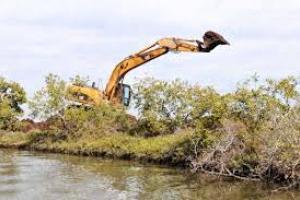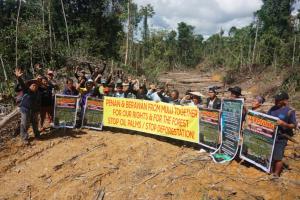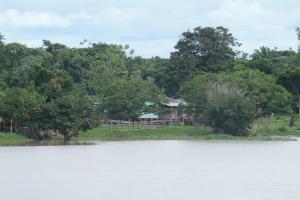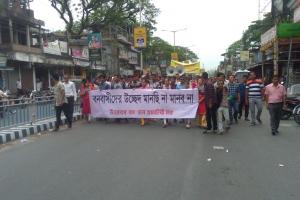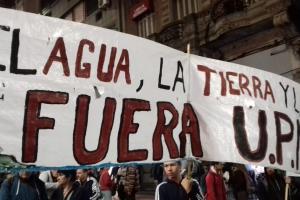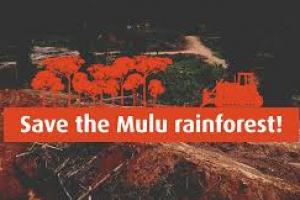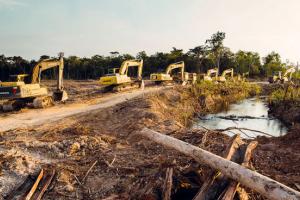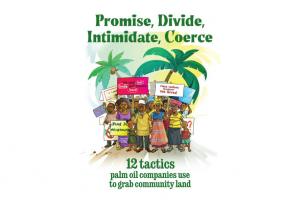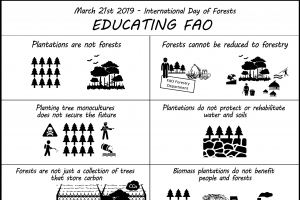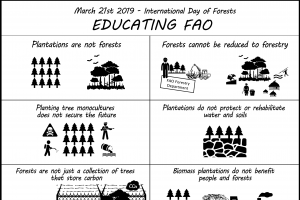Blue Carbon (or Blue REDD+) appeared as a new carbon offset scheme between emissions and carbon absorption in coastal territories. However, organizations in Indonesia warn that the initiative is a strategy to change the coastal and marine territories into tradable assets .
Large-Scale Tree Plantations
Industrial tree plantations are large-scale, intensively managed, even-aged monocultures, involving vast areas of fertile land under the control of plantation companies. Management of plantations involves the use of huge amounts of water as well as agrochemicals—which harm humans, and plants and animals in the plantations and surrounding areas.
Bulletin articles
14 May 2019
Bulletin articles
14 May 2019
Millions of hectares of mostly forested areas in Malaysia have been targeted for developing monoculture plantations –including expanding timber plantations-, however, many of these have not been fully developed yet.
Bulletin articles
14 May 2019
Despite the government of Brazil announcing cutbacks to action against deforestation, the Green Climate Fund awarded US$ 96 million for alleged emission reductions in the Brazilian Amazon. These avoided emissions in part exist only on paper.
Bulletin articles
14 May 2019
A long cycle of state repression in India now sees new amendments to the colonial Indian Forest Act which would not only make forest bureaucracy more powerful than ever, but would also de facto put an end to the landmark Forest Rights Act.
Bulletin articles
14 May 2019
The expansion of oil palm and logging in Wimbí is a fact. And in both cases, the protagonist is the same: the land trafficker who allowed the palm company, Energy & Palma, to enter. This new cycle of dispossession threatens the culture and survival of the community.
Other information
14 May 2019
Finnish company, UPM, plans to install its second pulp mill in Uruguay—which would be one of the largest in the world and produce over two million tons of pulp per year. The project requires a new railway route and a port terminal for the company, as well as the expansion of high voltage electrical distribution lines and several processing plants in a duty-free zone.
Other information
14 May 2019
An area of 4.400 hectares of the Mulu rainforest is currently being converted into palm oil monocultures; an area directly adjacent to a UNESCO World Heritage Site, the Mulu National Park. The affected indigenous Berawan and Penan communities were not consulted and oppose the project that will destroy their forest and livelihoods. The Bruno Manser Fonds (BMF) is calling for a moratorium on new oil palm plantations and for an immediate halt to logging in the Mulu National Park region. Please sign the petition now!
Other information
14 May 2019
A short documentary by Oxfam Peru shows the serious environmental and social problems that come with the expansion of monoculture tree plantations in the Peruvian Amazon. Thousands of hectares have been deforested—mainly with the cultivation of oil palm—which, in addition to affecting forests and streams, affect several native communities.
Other information
14 May 2019
Indigenous Papuans are seeing their forest being destroyed to be replaced by monoculture plantations. An interview by Mongabay news to anthropologist Sophie Chao evidenced the complex tensions between communities and the monoculture that is being imposed upon them.
Publications
4 April 2019
The booklet “Promise, Divide, Intimidate and Coerce: 12 tactics palm oil companies use to grab community land” aims to support communities who want to strengthen their resistance and better prepare themselves to stop corporations from establishing on their lands.
18 March 2019
FAO , chose Forests and Education as the theme for 2019 and underlines the importance of investing in forest education. But what does FAO mean by “forest education”?
Other information
18 March 2019
FAO chose Forests and Education as the theme for 2019 and underlines the importance of investing in forest education. But what does FAO mean by “forest education”?
